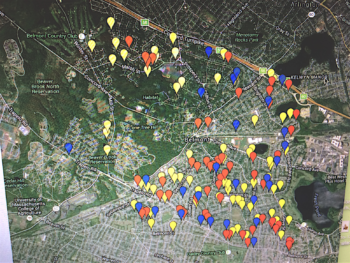Photo: The Butler school
The students of Daniel Butler Elementary School have been temporarily evacuated from the building located on White Street due to a suspected odor of natural gas in one of the school’s stairwells reported sometime before 8:30 a.m., Thursday, March 24.
The Belmont Fire Department is on scene, according to a social media message from the Boston Police Department. Due to the rain and cold temperatures, students are being taken by police to nearby St. Luke’s RC Church on Lexington Street.
National Grid which supplies gas to the town “will be arriving on scene shortly,” said police sources. Commuters will experience brief detours in the area.
